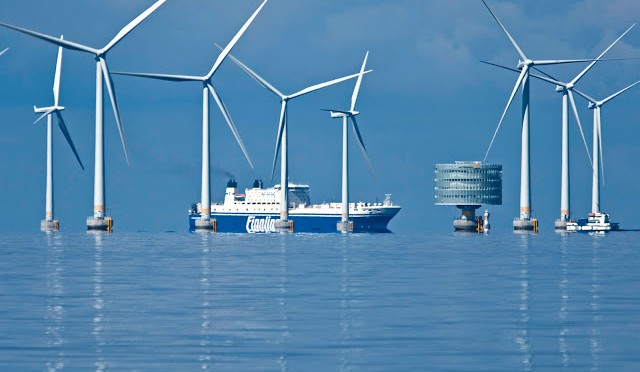Subsidy costs for British offshore wind farms are likely to fall below that of new nuclear plants in next month’s government auction, German firm Siemens’ head of its British offshore wind turbines business told Reuters.
Britain’s government is under pressure to bring down users’ electricity costs at the same time as subsidising low-carbon generation to help meet its carbon emission reduction targets and plug a looming supply gap.
The next government auction setting prices for new renewable power projects will open in April and Clark MacFarlane, Siemens managing director for offshore wind, said this could see offshore wind costs fall below new nuclear for the first time.
“I predict the price for offshore wind in the upcoming auction will be lower than that given to Hinkley,” he told Reuters in an interview.
“The price will keep coming down, as we find better logistic solutions, new grid solutions, as well as bigger turbines,” he said.
French utility EDF was awarded a contract which guarantees the new Hinkley C nuclear power station will get a price of 92.5 pounds ($112.50) per pounds/megawatt hour (MWh) for the electricity it produces, which is more than double the current wholesale price of electricity.
The cost of producing electricity from wind farms off the coast of Britain has already fallen 32 percent in the past four years, and averaged around 97 pounds per megawatt-hour (MWh) in the 2015-2016 financial year an industry report said earlier this year.
MacFarlane said increasing the size of wind turbines means automatically cutting the number of turbine towers and foundations needed to produce the same amount of electricity, thereby reducing costs.
Siemens produces turbines for British offshore wind projects at its 310 million-pound ($380 million) manufacturing plant in Hull, northeast England, including Dong Energy and Macquarie’s Race Bank project off the nearby coast.
The plant’s current order book will keep it busy until 2019, MacFarlane said, adding that the firm was confident of securing future deals with offshore project developers who are successful in the new government auctions.
Siemens hopes to also export turbines from the plant across Europe but has said this could depend on the outcome of Britain’s negotiations to leave the European Union.

